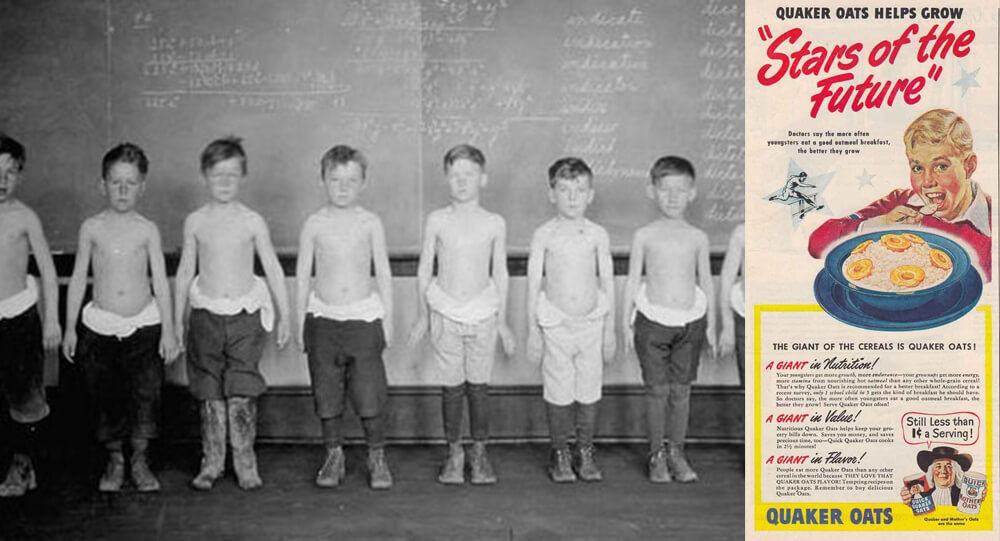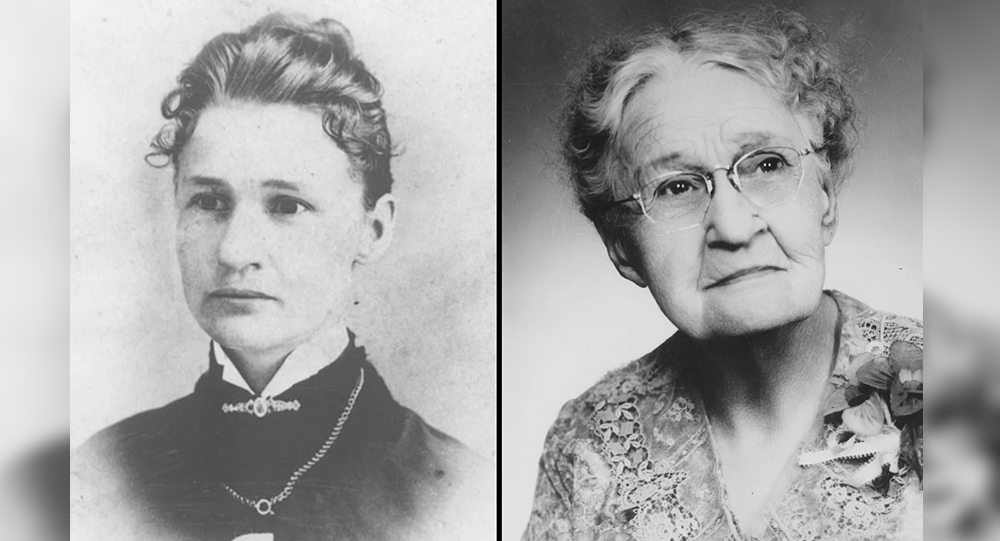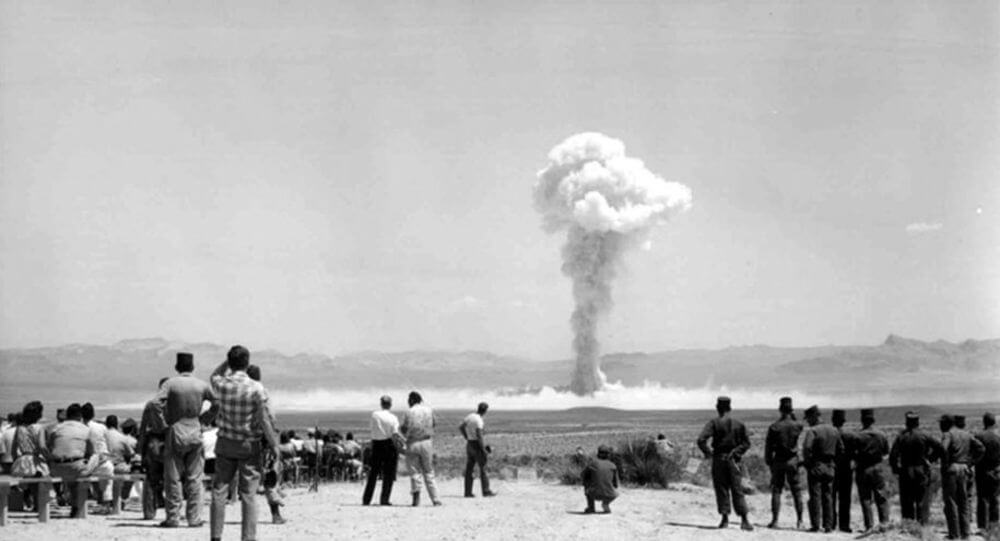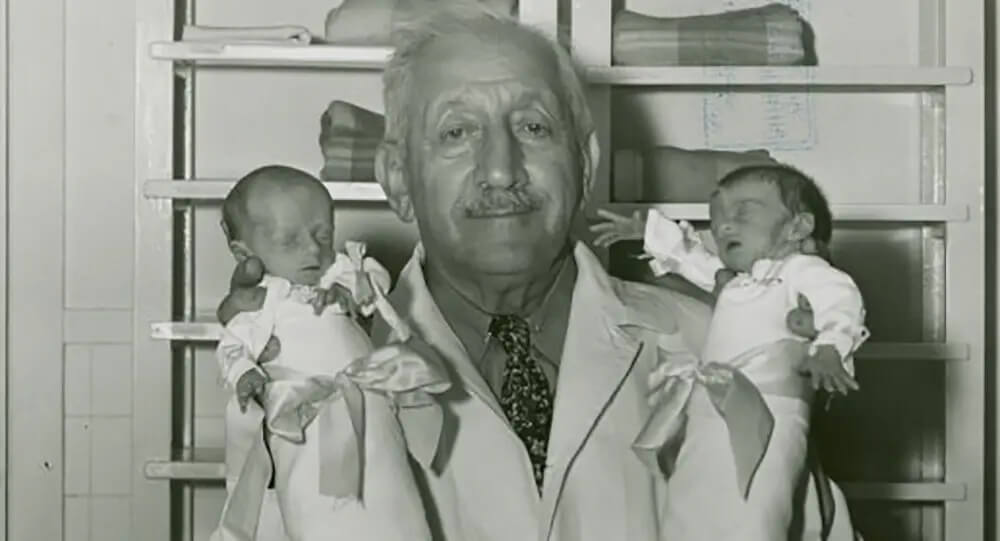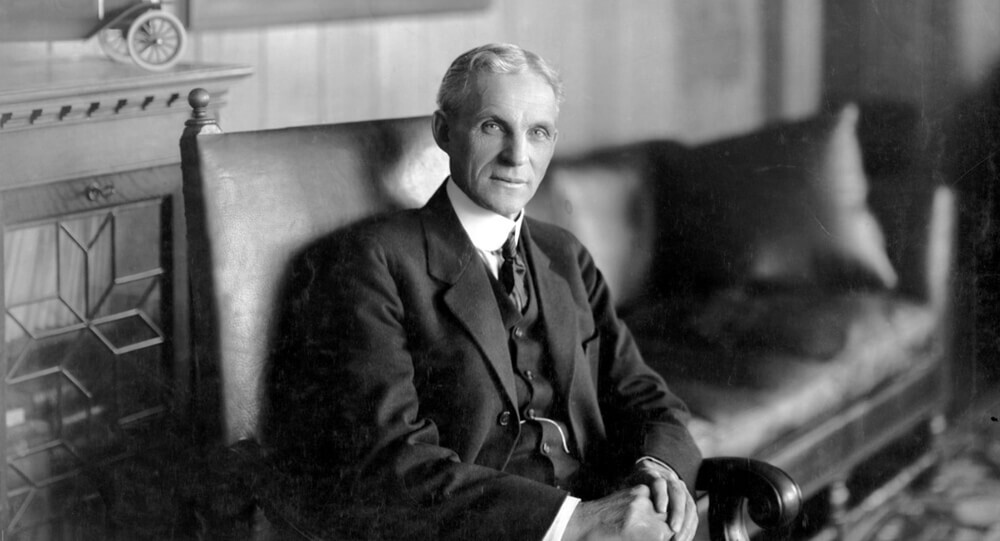
Christine Chubbuck, a 29-year-old television presenter, arrived at Channel 40, the local Florida TV station where she worked, on July 15, 1974. Sally Quinn wrote in a Washington Post editorial the following month, “She was in unusual good spirits.”
None of Chubbuck’s coworkers (a technical director, a male co-anchor, and two camerawomen) questioned her choice to change the running order of her show, Suncoast Digest, which would now begin with a story on a local shooting instead of an interview.
The show began at 9.30 a.m., as normal, but the team quickly ran into a technical hitch when the prerecorded VT failed to roll. Chubbuck then returned to her script, saying, “In keeping with Channel 40’s goal of bringing you the newest in blood and guts and in living color,” she stated, “you are going to see another first: an attempted suicide.”
Chubbuck then took a.38 caliber Smith & Wesson pistol from her bag of puppets, which she used to perform shows at a local hospital for mentally handicapped children, and shot herself in the right ear. Thousands of people watched her commit suicide live on television.
A coworker discovered a blood-soaked news piece on her desk as she was brought to the hospital (where she was later confirmed dead). Christine Chubbuck had written a longhand description of her own demise.
The Unfortunate footage

The news made headlines all across the world within hours. It was forgotten within months, save for those morbid detectives who would obsess over discovering the tragic footage once the internet age took hold. It remained a minor footnote in history until last year, when two films about Christine Chubbuck premiered at the Sundance Film Festival.
Indeed, Hall’s first instinct was to hide the screenplay from herself, believing that no one would want to witness such a macabre production.
“My immediate instinct was terror,” Hall adds. “I was perplexed as to why you would make this picture. The things she did have an infinite circular irony to them. Of course, she was afflicted with a terrible, terrible mental disease, and this is the result. However, the things she did had to be seen as a primal scream against a world that was growing increasingly predatory. In front of the world, she was practically abusing her own agony. This necessitates a delicate balancing act.
“You’re truly onto something if you can make a film about sensationalism without becoming sensational.” But I’m pleased to say that I believe we succeeded.”
The second of these, simply titled Christine, has received positive reviews for actress Rebecca Hall, who portrays Chubbuck in his dying weeks. When Hall initially met with filmmaker Antonio Campos (who also directed Simon Killer) and writers Craig Shilowich, she had never heard of Chubbuck.
Hall made her cinematic debut in 1992, at the age of ten, in the miniseries The Camomile Lawn, as the daughter of opera singer Maria Ewing and theatre director Sir Peter Hall. She has since demonstrated her acting prowess in a number of dramas (Vicky Cristina Barcelona, Frost/Nixon, The Town), blockbusters (Iron Man 3, The BFG), comedies (Everything Must Go), and award-winning theater productions.
senseless suicide
Chubbuck’s image by Hall is a stunning item, serving as a counterpoint to contemptuous statements like “senseless suicide.” Christine’s depressive episode is depicted as a nuanced account of depression in which she can giddily anticipate a date with her handsome co-anchor (Michael C Hall), engage in girl-talk with a colleague, Jean, and end up in screaming matches with both her mother (J Smith-Cameron) and her station boss (the indomitable Tracy Letts).
“I feel accountable that if I feel something for a character, I should probably strive to make other people feel something,” Hall adds. “I felt a tremendous sense of obligation to the real person.”
Screenwriter Shane Black claimed last summer that Hall’s initial villain part in Iron Man 3 was cut due to “merchandising problems.” The actor isn’t immune to or unaffected by misogyny. Chubbuck, on the other hand, was subjected to a far more uniform form of misogyny. When the journalist expresses concern about the news getting more graphic, her boss’s response is shocking, but not out of the ordinary for a 1970s workplace: “What’s your problem, Ms Chubbuck?” You’re a feminist, right? You believe that the best method to get ahead is to speak louder than the other person. In a nutshell, that’s the whole movement.”
“I believe this is a crucial exercise in human understanding,” Hall says. “There’s a comparison with the movie’s character Jean, who is a woman working in a similar high-pressure situation. In the video, she tells Christine, ‘When I’m unhappy, I eat some ice cream and sing a song.’ In other words, she’s saying, ‘I have the skills to keep surviving.’ I may not like it, but I can handle it.’
“With Christine, we’re asking her to spend two hours with someone who doesn’t have those tools.” Then, ideally, you’ll have a better grasp of how bad the situation is. Nobody should have to cope with that situation in the first place.”
Essentially unknowable
But why was Chubbuck the one who did it? There are no easy answers in the film. Did Hall come up with a working hypothesis to help her get through the show?
“An important part of the film’s balancing act is that it asks you to get close to someone who is fundamentally unknowable. It accomplishes it in a courteous manner, as it gives suggestions rather than generating false certainty. You’re dealing with a professional journalist. That was something we had to respect.
“I believe I came to the conclusion that if you have a strong desire to kill yourself for whatever reason, every day is a battle to stay alive.” She wakes up every day thinking to herself, “If I just succeed at this, if I just make friends with X, I won’t kill myself.” I’ll make it through the day’s challenges. She realizes that if she wants to stay alive, she’ll have to tell more juicy ‘if it bleeds, it leads’ stories. And he realizes, “If that’s what you want, I’m not going to be able to provide it to you.”
Last year, an experimental documentary on Chubbuck, Kate Plays Christine, was released. Why did these two films on a forgotten historical event come out so soon after one another? What’s more, why now?
“Her tale is incredibly indicative of so many things that we as a culture are wrestling with right now,” Hall speculates. “The idea of living your entire life in front of a camera.” The idea that it couldn’t have happened unless it was caught on video. False information. The fact that she continues to be subjected to gender prejudices. We still don’t know how to talk about or ask for help when it comes to mental health difficulties. The stigma associated with suicide.
“What she does is, in some manner, summarize everything and toss it at you, asking you to think about it.”
Christine has been released.

Ancient Jericho: The First Walled City In History
The ancient city of Jericho is the world's oldest walled city, with evidence of stone fortifications dating back nearly 9000 years.

Inside China’s Footbinding Tradition: The Painful Ritual of Lotus Shoes and Bound Feet
In China, Lotus shoes were used to bind women's feet to keep their feet small

The Mouth of Truth: Ancient Rome’s Legendary "Lie Detector" That Bit Off Hands
Discover the chilling legend of the Mouth of Truth (Bocca della Verità) in Ancient Rome—a massive carved stone face believed to bite off the hand of anyone who lied while inserting their hand into its gaping mouth. Uncover the truth behind its eerie reputation and how this ancient artifact became a symbol of honesty and fear.

How did Howard Florey discover penicillin
Penicillin was discovered by Alexander Fleming, but he never attempted to turn it into an antibiotic. It wasn't until ten years later that Howard Florey discovered Fleming's obscure paper and understood the mold's potential. Up to 200 million lives may have been saved as a result of Florey's work.

Jack the Baboon operated a railroad, earned a living, and never made a mistake
A baboon worked as a signalman for the railroad in the late 1800s. He never made a mistake and worked for the railroad until the day he died.

Iranian inmate dies from happiness after finding out he will not be executed
An Iranian man who was convicted of murder reportedly died from happiness after learning that his death sentence was being commuted.

Before Radar: How Giant Acoustic Mirrors Detected Enemy Aircraft in WWI and WWII
Long before radar revolutionized air defense, enormous acoustic mirrors and specialized sound locators stood as the first line of defense against enemy aircraft. Designed as giant “ears,” these structures amplified distant engine noises, allowing operators to detect incoming planes by sound alone. Dive into the intriguing world of these pioneering listening devices, their operation, limitations, and enduring legacy in military history.

The history of Flour sack clothing fashion
After Kansas mill owners found women reused flour sack materials into apparel in the 1920s and 1930s, they started applying patterned designs to give families with more fashionable patterns and material.

During the 1996 Olympic bombing, Richard Jewell falsely accused of committing the crime after saving dozens of people
Richard Jewell, an American security guard, discovered a bomb during the 1996 Olympic Games in Atlanta and assisted in the evacuation, but was later wrongfully accused and faced public scrutiny. He was cleared, but it had a lasting impact on him until his death in 2007 at the age of 44.

The Arabia Steamboat: Unearthing a 19th Century Time Capsule from the Missouri River
The Arabia was a steamboat that sank in the Missouri River in 1856. Over time, the river shifted 800 meters to the east, eventually turning the site of the sinking into a field. The steamboat remained under 45 feet of slit and topsoil until 1988, when it was excavated. The mud, as it turned out, was such a great preserver that most of the artifacts on board were found to be intact. They even found jars of preserved apples that were still edible!

Tunnels Dug by ancient giant sloths, A South American Megafauna
For years, scientists didn’t know what caused mysterious cave networks in South America. In 2010, they learned that the caves were actually tunnels dug by ancient giant sloths

The day Iceland's women went on strike
Icelandic women went on strike for equal rights on October 24, 1975. 90% of women walked out of their jobs and homes, effectively shutting down the entire country. The men were struggling to keep up. The following year, Parliament passed a law requiring equal pay. Iceland elected the world's first female President five years later. Iceland now has the highest gender equality rate in the world.

The unbroken seal on King Tutankhamun's tomb until 1922
The unbroken seal of Tutankhamun's tomb before it was opened in 1923, it was unbroken for over 3000 years.

Quaker Oats Fed Children with Radioactive Oatmeal
In the 1940s and 1950s, Quaker Oats and MIT conducted experiments on radioactive iron and calcium-containing cereal. The diet was part of a study to see if the nutrients in Quaker oatmeal traveled throughout the body. In January 1998, a $1.85 million settlement was reached for 30 victims who came forward.

The incredible story of Julia "Butterfly" Hill and her legacy
American environmental activist Julia “Butterfly” Hill lived in a 1500-year-old California Redwood tree for 738 days to prevent it from being cut down by the Pacific Lumber Company. The Simpson’s episode “Lisa the Tree Hugger” was inspired by Hill’s story.

Marion Stokes recorded 30 years of television
Marion Stokes, a Philadelphia woman began taping whatever was on television in 1979 and didn’t stop until her death in 2012. The 71,000 VHS and Betamax tapes she made are the most complete collection preserving this era of TV. They are being digitized by the Internet Archive.

Susanna Salter: The Trailblazing Story of America’s First Female Mayor
In 1887, Susanna Salter became the first female mayor in the United States, elected in Argonia, Kansas. Her nomination was initially a prank by men opposing women in politics. However, she won by a landslide and served effectively, inspiring the women’s suffrage movement and breaking barriers for women in leadership.

Atomic Tourism: In the 1950s, nuclear tests in Las Vegas served as a draw for tourists
Between 1950 and 1960, Las Vegas offered “Atomic Tourism” in which guests could watch atomic bombs being tested in the desert as a form of entertainment.

Martin Couney, Saved Thousands of Premature Babies Wasn’t a Doctor at All
Martin Couney never qualified as a medical doctor. However, in the 1900s, he saved thousands of premature babies by exhibiting them in incubators at his Coney Island sideshow. Over the course of his career, he is said to have saved about 6,500 babies that had previously been written off by mainstream medicine.

Irena Sendler: woman who rescued Jews during holocaust
Irene Sendler was the Zegota resistance group's head of the children's department. She risked her life to smuggle children out of the Warsaw ghetto, place them with Polish families or orphanages, give each child a new identity, and keep records so that they could be returned to their families. In 1943, the Gestapo arrested and sentenced her to death, but she was rescued by Zegota.

story of the youngest mother in the world at age of five - Lina Medina
Lina Medina, a five-year-old Peruvian girl, became the youngest mother in history in 1939 when she gave birth to a boy.

The incredible story of a plane that lost its roof in mid-flight and the light signal that saved 94 lives.
On April 28, 1988, Aloha Airlines flight 243 was on the way to Honolulu from Hilo when a huge portion of the upper part of the fuselage blew off the airplane.

Remembering the 1945 Empire State Building Disaster: When a Plane Met Skyscraper
An airplane crashed into the Empire State Building in 1945. Among other damage, plane parts severed the cables of an elevator and the woman inside fell over 70 stories. She lived and holds the world record for the longest survived elevator fall.

Henry Ford, The man popularizing the concept of the weekend off
Henry Ford was the first Industrial Giant to give his employees both Saturday and Sunday off in the hope of encouraging more leisurely use of automobiles and thus popularizing the concept of the "weekend."

From Flapper to Fashion Week: How 1920s Style Still Shapes Modern Trends
The roaring 1920s revolutionized fashion, introducing bold styles, daring cuts, and a spirit of freedom that still inspires today’s wardrobes. From flapper dresses to statement accessories, here’s how the Jazz Age lives on in modern fashion.














